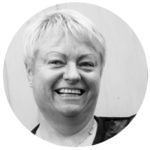Collective Impact Through Education
Grow Waitaha assists schools to achieve pedagogical change in a meaningful and manageable way, and to put learners at the centre of that change. Dr Chris Jansen explains.
As residents living in post-earthquake Canterbury, we have observed and/or been involved in the creative thinking and collective action across all schools in the region, exploring how and where learning happens.
For the last six years, Cheryl Doig and I have been part of a large programme of work called Grow Waitaha which is designed to support schools through city-wide educational transformation. This collaboration of the Ministry of Education, Ngāi Tahu and four consulting companies (Evaluation Associates, Massey University Design School, Core Education and Leadership Lab) has been talking with schools and has agreed on four aspirational impacts to focus on together over the next five years.
The first impact area is Futures where all students are future-focused and demonstrate global citizenship. To do this we need to broaden our definition of success beyond purely academic grades to a wide range of competencies. Equally important, this will require learners to have increased self-management (agency) over the direction of their learning.
Secondly, we are focused on Pathways. This includes smooth and seamless pathways into, between, and out of early childhood centres and schools. This would require a connected, collaborative, coherent and learner-centred schooling system.
The third area of impact is Equity and Inclusion. Schools across the region are developing authentic, rich curriculum and pedagogical approaches that reflect our bi-cultural nation. Schools, as Te Tiriti partners, will actively work in collaboration with mana whenua rūnanga to support Ngāi Tahu aspirations. Another aspect of this is an emphasis on inclusive education practices which are used to identify and remove barriers so that learning is accessible for all.
Finally, a vitally important impact area is Wellbeing. Our vision is that all ākonga/students have a sense of identity, belonging and place. This requires ākonga/students and teachers to be empowered to support their own wellbeing, and collaborative leadership is grown, enabled and informed.
Transformation in any big system like education requires a slow and systematic approach over many years; however, it’s heartening to begin to see the impact of this mahi/work in kura/schools all around the region. Wouldn’t it be incredible if we all, as residents in this region, teamed up around this collective impact?
Dr Cheryl Doig is a leadership futurist who follows leadership trends and research and translates these into practice, working internationally and virtually with organisations, business leaders and educators.
Her passion is for challenging organisations to think differently in order to adapt to a changing future – to think beyond their current leadership realities, while still using the best of the past.
Dr Chris Jansen is a director and senior consultant with Leadership Lab and works alongside organisations in the education, health, business and community sectors on a range of projects. Chris is also a senior lecturer at the University of Canterbury, where he teaches the Master of Business Administration and Postgraduate Diploma of Strategic Leadership.



